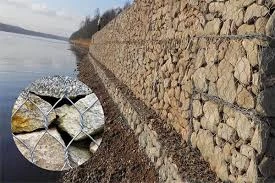
Oct . 13, 2024 15:53 Back to list
Field Fencing Solutions for Effective Livestock Management and Land Preservation
Field Fence Wire A Comprehensive Guide to Choosing and Using It
Field fence wire, often referred to simply as fencing wire, plays a crucial role in the maintenance of agricultural land, livestock containment, and property demarcation. The right fencing solution not only ensures the safety of animals but also demarcates boundaries and protects crops from wandering wildlife. In this article, we will delve into the types of field fence wire available, their uses, and the factors to consider when choosing the right one for your needs.
Types of Field Fence Wire
1. Barbed Wire Barbed wire is one of the most commonly used types of field fence wire, particularly in cattle ranching. It consists of two or more strands of wire twisted together with sharp barbs spaced at regular intervals. Designed to deter livestock from pushing against the fence, barbed wire is effective and relatively inexpensive. However, it may not be suitable for all animals due to the risk of injury.
2. Woven Wire Woven wire fences are made by interlacing vertical and horizontal wires. This type of fence is highly versatile and can be used for a variety of livestock, from sheep to poultry. Woven wire fences come in various heights and spacing options, allowing for customized solutions that suit different animals and terrains.
3. Electrified Wire Electric fencing typically consists of a single strand or multiple strands of wire that are energized with a low-voltage current. This type of fencing acts as a psychological barrier, delivering a mild shock to deter animals from crossing the boundary. It's cost-effective and allows for flexible fencing designs, making it popular among farmers and ranchers.
4. Chain Link Fence While not as common on farms as other types of field fence wire, chain link fencing can be an excellent option for enclosing small areas such as garden beds or poultry runs. It provides visibility and security while being durable and low-maintenance.
Choosing the Right Field Fence Wire
When selecting the proper field fence wire, several factors should be taken into account
- Type of Livestock The species you intend to contain plays a significant role in your choice. More aggressive animals like bulls may require sturdier options, such as barbed wire or woven wire, while smaller animals like chickens may do well with lighter fencing.
- Terrain The landscape of your property can influence the type of fencing you should choose. In hilly or uneven terrain, a flexible fencing option may be necessary, allowing you to adapt to changes in elevation.
field fence wire

- Budget Costs can vary significantly between different fence types. While barbed wire may be the cheapest option initially, ongoing maintenance costs and the need for replacements could make woven wire a more cost-effective choice in the long run.
- Weather Conditions The environment in which the fence will be placed matters. Extremely icy or wet conditions may corrode certain types of wire. Ensure you select materials that are weather-resistant and suitable for your local climate.
- Installation and Maintenance Consider your willingness to install and maintain the fence. While some types of fencing can be easily installed and require minimal upkeep, others may demand more labor, skill, or regular maintenance to remain effective.
Installation Tips
Installing field fence wire can be a straightforward task if done correctly. Here are some tips for a successful installation
1. Plan Your Layout Before installation, mark out your intended fence line with flags or stakes to visualize how the fence will look.
2. Use Proper Tools Essential tools for installation include a fence post driver, pliers, and a level. Selecting the right fence posts is crucial; wooden posts are commonly used, but metal posts are gaining popularity for their durability.
3. Maintain Proper Tension Ensuring the wire is taut prevents sagging and enhances the fence's effectiveness. Use a tensioning tool when needed for the best results.
4. Regular Inspections After installation, routinely check the fencing for signs of wear and tear, especially along areas where animals frequently come into contact with the wire. Prompt repairs will extend the life of your fence and ensure ongoing effectiveness.
Conclusion
Field fence wire is an indispensable component in agricultural practices, offering security, protection, and boundary demarcation. By understanding the various types of fencing available, assessing your unique needs, and carrying out proper installation and maintenance, you can ensure your fencing solution remains effective for years to come. Investing time and resources in the right field fence wire pays off in the long term, safeguarding both livestock and property.
-
Why a Chain Link Fence is the Right Choice
NewsJul.09,2025
-
Upgrade Your Fencing with High-Quality Coated Chicken Wire
NewsJul.09,2025
-
The Power of Fence Post Spikes
NewsJul.09,2025
-
The Best Pet Enclosures for Every Need
NewsJul.09,2025
-
Secure Your Property with Premium Barbed Wire Solutions
NewsJul.09,2025
-
Enhance Your Construction Projects with Quality Gabion Boxes
NewsJul.09,2025
Products categories











